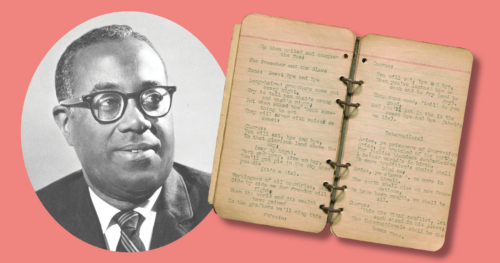Today, we remember
May 31, 2021
In times of trouble, may the Lord answer your cry.
May the name of the God of Jacob keep you safe from all harm.
May he send you help from his sanctuary
and strengthen you from Jerusalem.
May our God remember all your gifts
and look favorably on your burnt offerings.
May the Lord grant your heart’s desires
and make all your plans succeed.
May we shout for joy when we hear of your victory
and raise a victory banner in the name of our God.
May the Lord answer all your prayers.
Psalm 20 (NLT)

Group of nine. (Provided)
We gathered by the shoreline of a lake in Colorado. We were tired and showing symptoms of compassion fatigue. We had endured 24 deaths in 12 months — 10 of those by suicide.
We had to take a knee, remember and mark the lives of our fallen siblings in order that we could stand once again.
We came together on the shoreline, each sharing how one soul or several of those we had lost that year had moved us, mattered to us and changed us.
We placed the initials of all 24, each on a separate rock. We formed the rocks in a circle at the foot of a crude cross made of branches and twine. We stood, shared and remembered for about 40 minutes.
We all prayed together.
And then we inhaled the beauty of the day and fished and kayaked and shared a meal.
We exhaled, remembering but leaving the weight on the shoreline.
We returned to our ministry the next day. Better.
I am a missionary. Many denominations support my specialized ministry role under the umbrella of Missions. After all, missionaries speak a foreign language, wear a certain cultural garb and practice ministry in a context typically outside the majority mainstream. All of this describes me very well. The mission field in which I labor is the United States Air and Space Forces. The people I serve are American Airmen and Guardians. Those of us who gathered are Chaplains and Religious Affairs Specialists. We come from a variety of faith traditions and backgrounds, but we are all on one team at a base in Colorado.
Daughters and sons of your congregations are our flock, and we love them. Their bravery and resilience to serve in the Profession of Arms come with reward and cost. Some will serve 20 to 30 years and retire. Some will serve for a season and then move on to other meaningful vocations. Some will serve and pay with their lives. The freedoms we hold dear demand sacrifice.
Today, Memorial Day, is more than a holiday. Today, as a nation, we remember.
Let us all take a knee and remember the fallen and the sacrifices they made for our freedom. May the Lord have mercy on us all.
Chaplain, Lt. Colonel Robert D. Ward, USAF, a missionary to the military on loan to the Department of Defense from the PC(USA)
Let us join in prayer for:
PC(USA) Agencies’ Staff
Tony Lewis, Presbyterian Publishing Corporation
Dick Liberty, Board of Pensions
Let us pray:
Lord, today we stop and remember the sacrifice made by those who paid the ultimate price on behalf of our nation. We pray that their sacrifices are never forgotten, nor the pain of their families.
We acknowledge that freedom comes at a cost and pray that we will pursue peace. We pray our efforts will improve the plight of all and that our struggles will not be to privilege a few but rather seek to share your bounties with all souls everywhere.
Today, Jehovah Jireh, provide meaning in the memories of those who are no longer with us. Provide comfort and healing to their loved ones.
Let us turn to you, Lord, in our grief and in our remembrance of the fallen. Guide us toward unity and true justice as we honor those who gave their lives for the freedoms we now enjoy.
On this Memorial Day, we pray for peace and remember those who gave all. Lead us toward a world where no one must give their lives in pursuit of justice, freedom and acceptance. May we be receptive to your guidance and may we never forget the fallen. Amen.
 During the holidays, we find ourselves wrapping the babe born in Bethlehem in a thick blanket woven with the threads of sentimental love. We sing hymns about how love came down from heaven. We light the fourth candle around the Advent wreath — referred to as the “love” candle in most wreath-lighting liturgies — and bask in its warm glow. It’s all very comforting. Yet the love God gave to the world in the way of Jesus is not about feelings. It’s about action. It was seen in Mary’s “yes” to be the Christotokos, the “Christ-bearer.” It was illustrated by Joseph taking Mary as his wife, even though she was carrying a child that was not his. It rang through the night skies as angels sang of salvation to the shepherds.
During the holidays, we find ourselves wrapping the babe born in Bethlehem in a thick blanket woven with the threads of sentimental love. We sing hymns about how love came down from heaven. We light the fourth candle around the Advent wreath — referred to as the “love” candle in most wreath-lighting liturgies — and bask in its warm glow. It’s all very comforting. Yet the love God gave to the world in the way of Jesus is not about feelings. It’s about action. It was seen in Mary’s “yes” to be the Christotokos, the “Christ-bearer.” It was illustrated by Joseph taking Mary as his wife, even though she was carrying a child that was not his. It rang through the night skies as angels sang of salvation to the shepherds.





